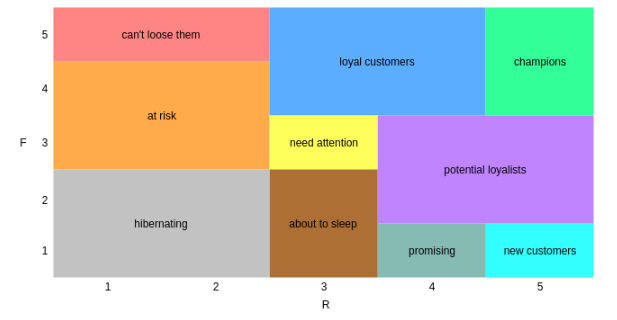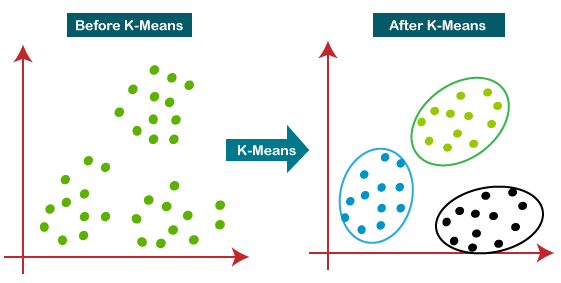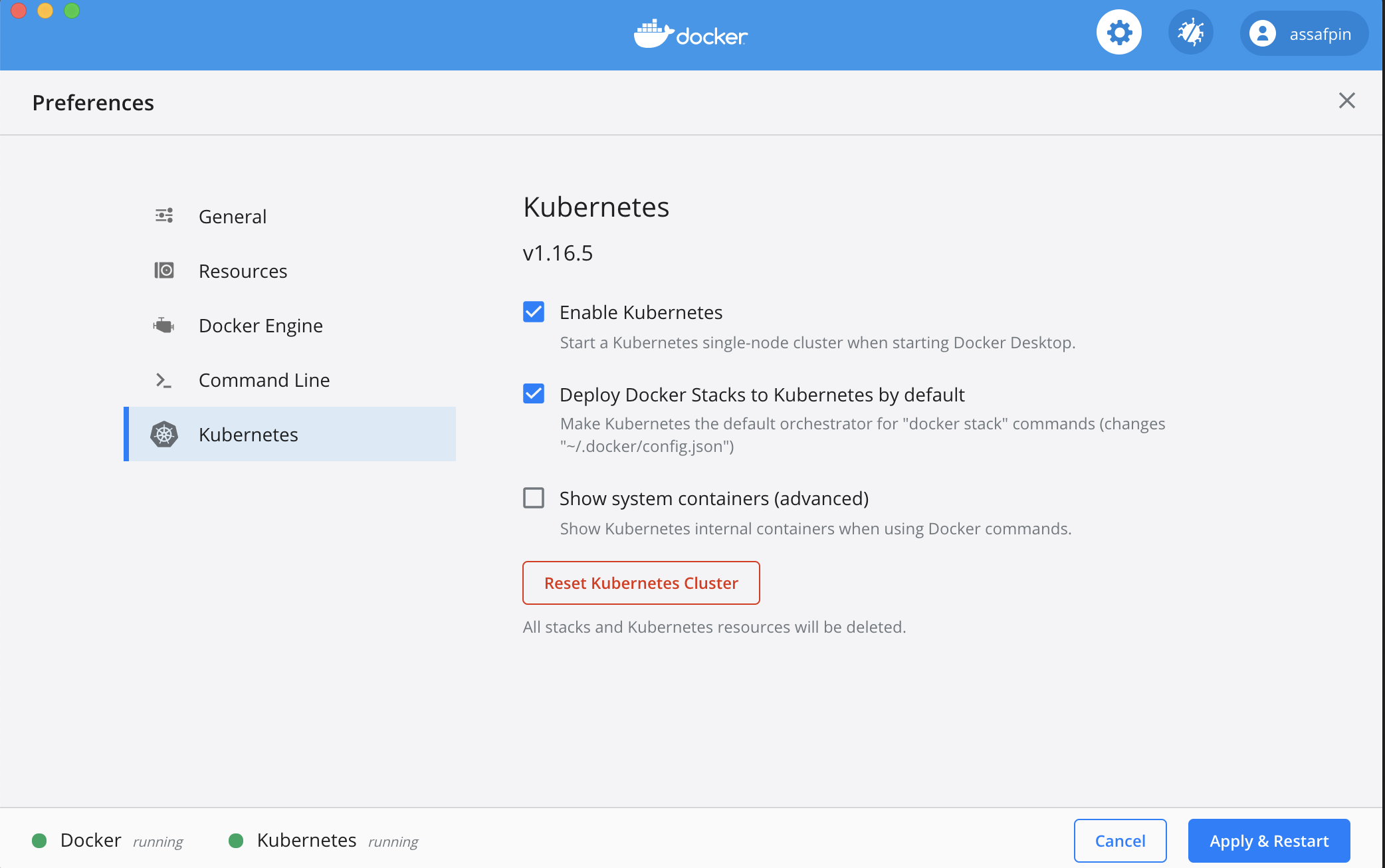Customer Segmentation with RFM Scores and K-means
RFM Segmentation table:
K-Means Clustering:
Business Problem
Rule-based customer segmentation machine learning method with RFM for customer segmentation of K-Means comparison is expected.
History of Dataset
The dataset named Online Retail II contains a UK-based online sale store's sales between 01/12/2009 - 09/12/2011. We used data from 01/12/2010 - 09/12/2011 years at this project. Because we wanted to use recent data. The product catalog of this company includes souvenirs. The vast majority of the company's customers are corporate customers.
Variables
InvoiceNo – Invoice Number, If this code starts with C, it indicates that the transaction has been cancelled.
StockCode – Product code, unique number for each product.
Description – Product name or derscription
Quantity – Product quantity
InvoiceDate –Invoice Date
UnitPrice – Unit price (Currency: GBP)
CustomerID – Customer ID number
Country – Country name





